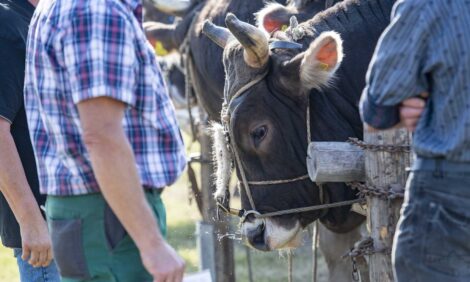



Environmental Sustainability Of Beef Production Improves
Advances in productivity over the past 30 years have reduced the carbon footprint and overall environmental impact of US beef production, according to a new study presented by a Washington State University researcher.In “Comparing the environmental impact of the US beef industry in 1977 to 2007,” assistant professor of animal science Jude L. Capper revealed that improvements in nutrition, management, growth rate and slaughter weights, have significantly reduced the environmental impact of modern beef production and improved its sustainability.
Challenging Misconceptions
“These findings challenge the common misconception that historical methods of livestock production are more environmentally sustainable than modern beef production,” said Prof Capper in her presentation today at the American Society of Animal Science meeting in Denver.
“It’s important to note that all food production has an environmental impact, but significant improvements in efficiency have clearly reduced the greenhouse gas emissions and overall environmental impact of beef production,” said Prof Capper.
“Contrary to the negative image often associated with modern farming, fulfilling the US population’s requirement for high-quality, nutrient-rich protein while improving environmental stewardship can only be achieved by using contemporary agricultural technologies and practices.”
Fewer Animals Slaughtered
In 2007, there were 13 per cent fewer animals slaughtered than in 1977 - 33.8 million compared to 38.7 million - but those animals produced 13 per cent more beef - 26.3 billion lbs of beef compared to 23.3 billion lbs in 1977.
By producing more beef with fewer resources, Prof Capper found that the total carbon footprint for beef production was reduced by 18 per cent from 1977 to 2007.
“As the global and national population increases, consumer demand for beef is going to continue to increase,” Prof Capper said.
“The vital role of improved productivity and efficiency in reducing environmental impact must be conveyed to government, food retailers and consumers.”
When compared to beef production in 1977, each pound of beef produced in modern systems used:
- 10 per cent less feed energy
- 20 per cent less feedstuffs
- 30 per cent less land
- 14 per cent less water
- 9 per cent less fossil fuel energy
- 18 per cent decrease in total carbon emissions (methane, nitrous oxide and carbon dioxide)
The study used a whole-system environmental model that integrated all resource inputs and waste outputs within the beef production system, from crop production to beef arriving at the slaughterhouse.
This project was supported by the Beef Checkoff Program through a research grant from state beef councils in Iowa, Kansas, Nebraska, South Dakota and Washington.
Advances in productivity over the past 30 years have reduced the carbon footprint and overall environmental impact of US beef production.


